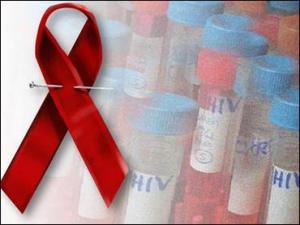
Researchers have announced that a baby girl in the US, who was born with HIV, appears to have been cured after very early treatment with standard drug therapy.
The Mississippi child is now two-and-a-half years old and has been off medication for about a year with no signs of infection.
More testing needs to be done to see if the treatment would have the same effect on other children.
But the results could possibly lead to a cure for children with HIV.
If the girl stays healthy it would be only the world’s second reported cure.
Dr. Deborah Persaud, a virologist at Johns Hopkins University in Baltimore, presented the findings at the Conference on Retroviruses and Opportunistic Infections in Atlanta.
“This is a proof of concept that HIV can be potentially curable in infants,” she said.
In 2007, Timothy Ray Brown became the first person in the world believed to have recovered from HIV.
His infection was eradicated through an elaborate treatment for leukaemia that involved the destruction of his immune system and a stem cell transplant from a donor with a rare genetic mutation that resists HIV infection.

In contrast, the case of the Mississippi baby involved a cocktail of widely available drugs already used to treat HIV infection in infants.
It suggests the treatment wiped out HIV before it could form hideouts in the body.
These so-called reservoirs of dormant cells usually rapidly re-infect anyone who stops medication, said Dr. Deborah Persaud.
The baby was born in a rural hospital where the mother had only just tested positive for HIV infection.
Because the mother had not been given any prenatal HIV treatment, doctors knew the baby was at high risk of being infected.
Researchers said the baby was then transferred to the University of Mississippi Medical Center in Jackson.
Once there, paediatric HIV specialist Dr. Hannah Gay put the baby on a cocktail of three standard HIV-fighting drugs at just 30 hours old, even before laboratory tests came back confirming the infection.
“I just felt like this baby was at higher-than-normal risk and deserved our best shot,” Dr. Hannah Gay said.
[youtube fnR_tPwFZRI]